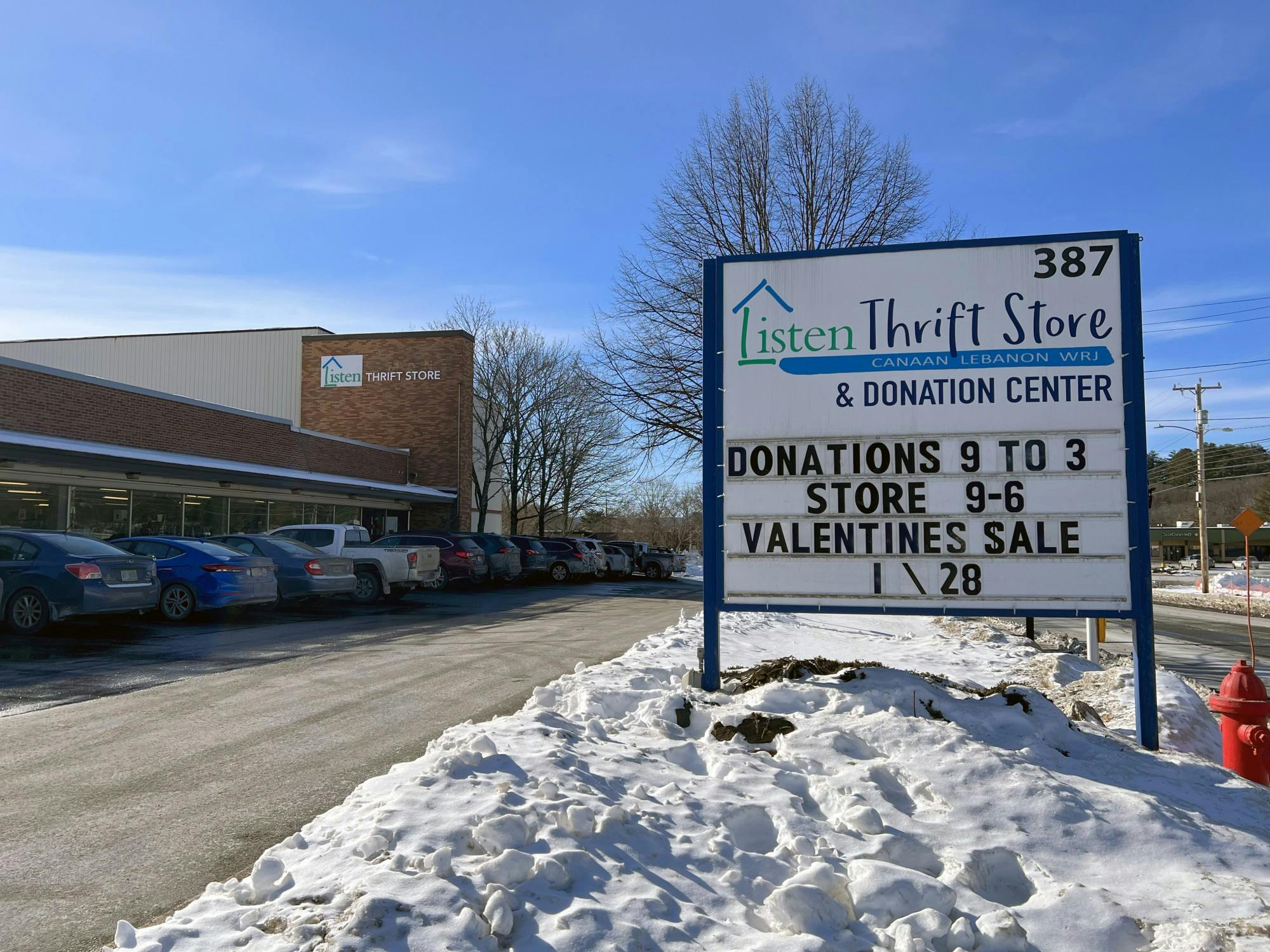On Jan. 15, Listen Community Services, a secondhand store chain that uses its proceeds for community projects, announced on Facebook that it would be opening up a boutique section in their Lebanon thrift store location on Jan. 18. According to the post, the space will function as a way for more expensive clothing to be concentrated in one area.
“Our primary mission is to provide a space where affordable clothing is available for everyone in the Upper Valley,” the post stated. “However, we’ve heard from some folks that they’d like to see a space where some of our higher quality, more expensive clothes can be seen together.”
This decision has prompted mixed reactions from customers. Frequent shopper Sarah Stewart, a Hanover resident and nonprofit fundraising consultant, said she thinks the boutique opening was a good move on Listen’s part because she believes it will generate more revenue to fund community work.
“Their primary mission is not the thrift store,” Stewart said. “That’s one of the ways that they pay for their real work, which is giving out heating subsidies and housing subsidies, and running a food pantry and doing community meals.”
According to a recent Valley News article, Listen allocates $1.25 million a year to run its social service programs — around 25% of the revenue of their three different thrift store locations in Lebanon, White River Junction and Canaan.
According to Stewart, another benefit of the boutique is its potential positive environmental impact, citing water use and waste created by the fashion industry. Stewart hopes the boutique might draw more people to Listen, increasing sustainable fashion purchases.
“If the boutique encourages people who would normally stay away [from Listen] because they think it’s junky to actually go in and buy things second hand, I think that is awesome,” she said.
Stewart pointed out that many people who shop at thrift stores are resellers who buy items at lower prices just to sell them online at higher ones.
“This keeps more of the money for Listen,” she said.
However, others said that they believe Listen should not be using high prices to sell donated clothing.
Tess Bowler ’25 said that she feels that having a boutique gives Listen’s designation as a thrift store an inaccurate label.
“The core value of a thrift store is not usually to make a profit,” she said. “It’s to sell secondhand clothing to people who probably can’t afford it.”
Joann Kwolek Dundas, a frequent Listen shopper and longtime assistant manager of multiple Salvation Army thrift stores, said she is a supporter of the boutique.
“It definitely can work,” she said. “It all depends on how they price things. You know, it’s a thrift store, and it’s supposed to help people that aren’t capable of paying the higher prices, so maybe they should just keep prices in the middle somewhere.”
Dundas added that if pricing is too high, the item won’t sell in the normal thrift store circulation, so she believes that having a section “more suited” for certain types of clothing will be helpful.
“They know their customer base, or they should, so they should be able to pretty much gauge what they can sell something for,” she said, adding, “I think the boutique could be a really good thing.”
Listen management did not respond to requests for comment sent to the store email.




